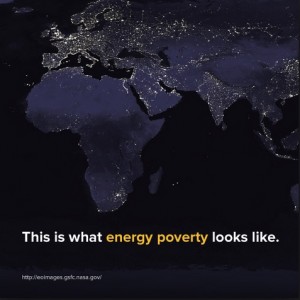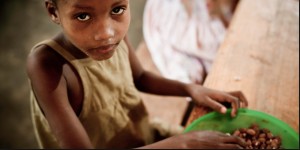The wonders of language where fossil fuel companies fight “energy poverty” and Irish farmers fight global hunger with beef and cheese
Fuel
Over the past several years, there has been a concerted effort to wean the world of its reliance on cheap coal as a major energy source. The growing divestment movement has focused in particular on dumping stocks of coal companies. To offset such movements, one of the largest coal companies, Peabody, started a public relations campaign — Advanced Energy for Life — that is reminiscent of the deceptive PR work of the tobacco companies. It argued that fossil fuels, especially coal, were the cheapest and most available sources of energy, that without sufficient energy the developing world would remain in poverty, and that this “energy poverty,” even global hunger,” could be eliminated through reliance on cheap coal. In a similar vein, Shell corporation has argued that efforts to cut fossil fuels in developing countries constitutes “energy colonialism.” When is the last time we heard Shell defending the rights of impoverished peoples?
Peabody forgot to add that coal is the worst driver of climate change and it is climate change that threatens to prolong and deepen global hunger and destruction of the developing world’s natural and energy resources. Recently, the World Bank has rebuffed Peabody’s claims and has committed to not fund new fossil fuel projects, except under the most extreme circumstances. The Bank said that as for global poverty, coal is part of the problem and not part of the solution.
Oxfam Australia has also debunked these claims that coal is good for poor people. Oxfam reported that coal puts people at deeper risk through climate change impacts as well as by polluting the air with toxic chemicals. Oxfam’s efforts are needed to counter the mantra of Australia’s Prime Minister Tony Abbott that “Coal is good for humanity,” or at least that slice of humanity rich enough to own stock in coal companies.
In an embarrassing moment of lapse in taste, not to mention truth, the head of Peabody even suggested that countries facing Ebola outbreaks could have successfully fought Ebola if only they had abundant sources of cheap energy, of which coal would be most preferable. According to Peabody, it was lack of energy sources that prevented the development of a vaccine against Ebola. Given that there is no approved vaccine and that other sources of energy, like solar, would have been fine, the argument was transparently self-serving, ludicrous and insensitive.
Food
In another context, the Irish government has adopted a policy called Harvest 2020 that was fashioned by the agri-food industry. Harvest 2020 calls for a 50% increase in dairy production (milk and cheese), and a boost in beef exports. Since agriculture already accounts for about 30% of Ireland’s total greenhouse gases (GHGs), such an expansion of the sector would make it difficult, if not impossible, for Ireland to meet its GHG reduction targets under EU law without a significant sacrifice from other sectors, such as transport, and the general public. As one way of trying to justify such a policy, some argued that Ireland’s agriculture products are critical for avoiding starvation in the developing world. One can visualize the poster for such a campaign: a starving child from a developing country gleefully scoffing down a beef burger with cheese and a glass of milk, all from Ireland.
The argument is spurious as people in the developing countries can survive without prime beef and fatty cheeses, which they cannot afford anyway. The real market for such products is the affluent EU market and the growing middle classes in quickly developing countries, such as China, not those dying of hunger. As the United Nations has urged, a shift to a diet that does not depend on animal products, especially meat and dairy products, would be the most helpful way to reduce hunger, fuel poverty and climate change impacts. For meat and dairy production uses 70% of global freshwater consumption, 38% of total land use, and 19% of world’s GHG emissions (30% of GHGs in Ireland).
Unfortunately, even the European Environment Agency (EEA) slipped into this argument, in its Signals 2015 report. There it argued that the EU is one of the world’s largest food producers and any reduction in the key staples it produces would “jeopardize food security in the EU and in the world, and increase global food prices.” The staples cited include 2/3 of the world’s wine and 3/4 of olive oil. Somehow it is imaginable that many people, especially in the food-starved regions, can do without wine and olive oil.
Sources
Suzanne Goldenberg, “World Bank rejects energy industry notion that coal can cure poverty,” The Guardian (29 July 2015. www.theguardian.com/environment/2015/jul/29/world-bank-coal-cure-poverty-rejects
Simon Bradshaw, “Powering Up Against Poverty: Why Renewable Energy Is The Future,” Oxfam Australia (July 2015). www.oxfam.org.au/wp-content/uploads/2015/07/coal_report_lowres_web2.pdf
Samantha Page, “New Report From Anti-Poverty Group Debunks Claim That Coal Is Good For Poor People,” Climate Progress (29 July 2015). thinkprogress.org/climate/2015/07/29/3685523/coal-doesnt-help-electricity-poverty/
Suzanne Goldenberg, “Coal giant exploited Ebola crisis for corporate gain, say health experts,” The Guardian (20 May 2015). www.theguardian.com/environment/2015/may/19/peabody-energy-exploited-ebola-crisis-for-corporate-gain-say-health-experts
Irish Department of Agriculture, Fisheries and Food, Food Harvest 2020: A vision for Irish agri-food and fisheries www.agriculture.gov.ie/media/migration/agri-foodindustry/foodharvest2020/2020FoodHarvestEng240810.pdf
Jack McCarthy, “Climate Change and Harvest 2020,” An Taisce Magazine (Summer 2014). www.antaisce.org/sites/antaisce.org/files/2014-05-an_taisce_magazine-lowres.pdf
Felicity Carus, “UN urges global move to meat and dairy-free diet,” The Guardian (2 June 2010). www.theguardian.com/environment/2010/jun/02/un-report-meat-free-diet
European Environment Agency, Signals 2015: Living in a changing climate www.eea.europa.eu/highlights/living-in-a-changing-climate




No comments yet, add your own below